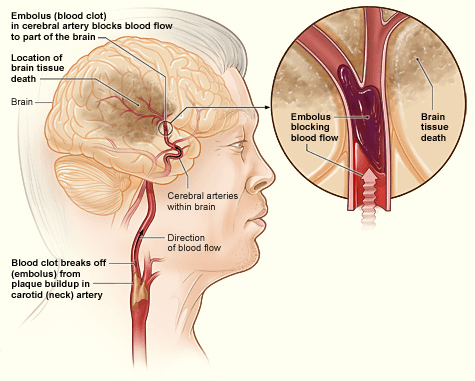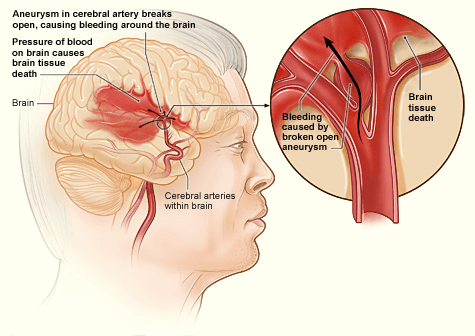Stroke Symptoms To Look For
Now that you know the causes of stroke and the main types, let’s discuss the signs and symptoms of stroke. Knowing the symptoms can help you act quickly if you or someone you love suffers a stroke, which can help save lives and possibly prevent permanent disability.
These are the stroke symptoms to be aware of:
- Speech difficulty, including slurred speech or problems understanding speech
- Sudden weakness or paralysis in your face, leg or arm, particularly on only one side of the body
- Difficulty walking, including lack of coordination or loss of balance, and dizziness
- Confusion
- Headache that is sudden and severe
- Vision problems in one or both eyes
If you or someone you know experiences any of these symptoms, call 911 immediately. Do not wait to see if the symptoms go away before seeking medical attention because prompt treatment can decrease your risk of brain damage, disability and permanent damage to your memory, speech and movement. If you witness someone suffering from a stroke, stay with the person and watch him or her carefully until help arrives. It’s also important to make a note of when the symptoms first began; this information can greatly affect treatment options.
Remember the acronym “FAST” to help you recognize the symptoms of stroke. “FAST” stands for:
Face: Ask the person to smile and determine if one of the sides of his or her face droops.
Arms: Ask the person to raise both arms and notice if one arm falls down.
Speech: Give the person a simple phrase and ask them to repeat it to you. Note if the person’s speech is slurred or sounds unusual.
Time: Call 911 right away if you observe any symptoms of stroke.
How To Prevent A Stroke
 There are numerous risk factors for stroke, and many of them are within your control. By making healthy lifestyle choices and properly managing any pre-existing medical conditions, it is possible to reduce your risk. Let’s look at what you can do to prevent a stroke, starting with your lifestyle.
There are numerous risk factors for stroke, and many of them are within your control. By making healthy lifestyle choices and properly managing any pre-existing medical conditions, it is possible to reduce your risk. Let’s look at what you can do to prevent a stroke, starting with your lifestyle.
Eat a healthy diet. You can reduce your stroke risk by maintaining a diet that is rich in fruits, vegetables, fiber, and omega-3 fatty acids. It’s also important to limit your intake of trans fat, saturated fat, cholesterol, and sodium. Seafood, nuts, plant-based foods, beans, lean meats, and whole grains are excellent additions to any healthy diet.
Exercise regularly. Aim for at least 2.5 hours each week of exercise that’s moderate in intensity, like riding a bike, doing water aerobics or going for a brisk walk. By exercising regularly, you can improve your fitness levels, lower your blood pressure and cholesterol, and maintain a healthy weight. If you are overweight or obese, your risk of stroke increases. A healthy diet and regular exercise can help you maintain your weight.
Drink alcohol in moderation. Excessive alcohol consumption can raise your blood pressure, increasing your risk of stroke. The CDC recommends no more than two alcoholic beverages a day for men and no more than one drink per day for women.
Don’t smoke. Smoking greatly increases your stroke risk. Even if you smoke now, quitting can significantly reduce your risk.




 There are numerous risk factors for stroke, and many of them are within your control. By making healthy lifestyle choices and properly managing any pre-existing medical conditions, it is possible to reduce your risk. Let’s look at what you can do to prevent a stroke, starting with your lifestyle.
There are numerous risk factors for stroke, and many of them are within your control. By making healthy lifestyle choices and properly managing any pre-existing medical conditions, it is possible to reduce your risk. Let’s look at what you can do to prevent a stroke, starting with your lifestyle.






